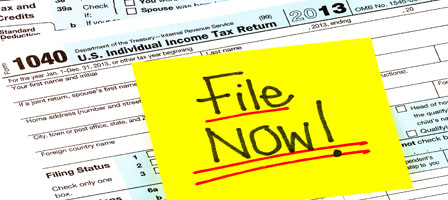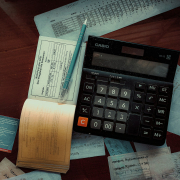COMMON INVESTMENT ERRORS
On December 22, 2017, The Tax Cuts and Jobs Act was signed into law. The information in this article predates the tax reform legislation and may not apply to tax returns starting in the 2018 tax year. You may wish to speak to your tax advisor about the latest tax law. This publication is provided for your convenience and does not constitute legal advice. This publication is protected by copyright.
There are a number of ways that a little knowledge can be a risky thing when dealing with investments. Following is a brief overview of some common mistakes made by investors.
- Investing based on a cold call from an unknown broker. This is generally always a mistake.
- Assuming you can exchange fund shares without triggering a gain. Many fund families provide fund exchange privileges, allowing you to freely exchange funds within the family of funds. However, the exchanges are taxable events and any gain or loss from each exchange must be accounted for on your tax return for the year of the exchange.
- Buying last year’s hot investment. A previously rising star often has risen near its peak. Your late investment may have nowhere to go but down.
- Neglecting to periodically review your investments. If you like to buy and hold your investments, you may have a tendency to leave your investments alone for too long. Your allocations should be reviewed regularly.
- Having a belief that “fixed income” is also “fixed value.” Just because the income rate is fixed for a bond, its value is not. In a time of rising interest rates, bond values can decrease.
- Equating high yields with high returns. Yield only deals with the income stream of an investment. Other factors, such as risk and volatility, can determine the underlying value of the investment. Both are necessary to achieve high returns.
- Presuming that all investment products sold by banks are insured. Many banks now offer more than their traditional products and generally these nontraditional products are not FDIC insured.
- Buying mutual fund shares late in the year. Almost all mutual funds make annual capital gain allocations late in the year, generally December. If you purchase right before these allocations, you’ll receive significant taxable income even though you’ve only owned the fund for a small portion of the year.
- Writing checks on mutual fund accounts. Many mutual funds allow checks to be written against the account. Writing these checks can trigger a sale of fund shares that can be a taxable event.
- Forgetting about the “wash sale” rules. Re-purchasing a stock or a mutual fund (including reinvested dividends) that you sold at a loss within thirty days of the previous sale results in the loss becoming nondeductible for tax purposes.
- Relying on hot tips. Remember, if it sounds too good to be true, it probably isn’t true.







Leave a Reply
Want to join the discussion?Feel free to contribute!